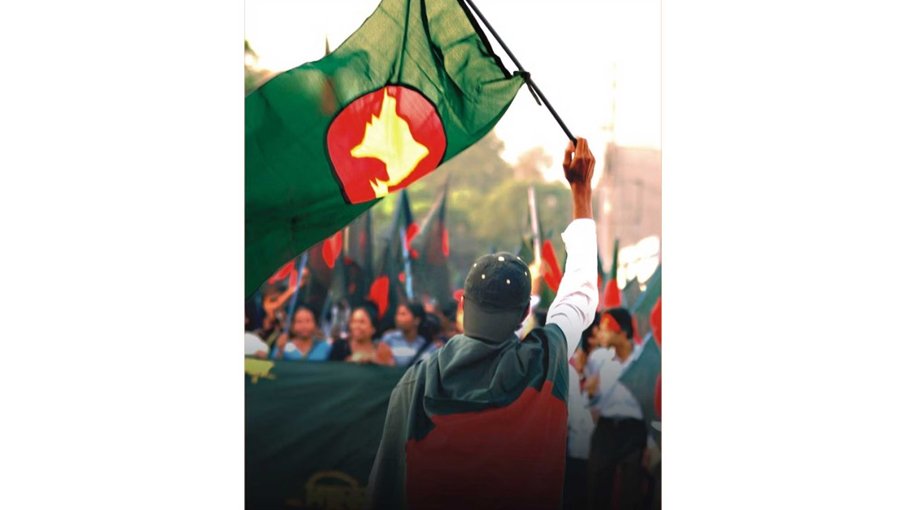Revitalising Politics: Embracing the Spirit of Liberation

Bangladesh, a country that emerged from the intense struggle of the War of Liberation, serves as a powerful tribute to the unwavering determination of its citizens. Under the leadership of the visionary leader Bangabandhu Sheikh Mujibur Rahman, a large number of Bangladeshis made the ultimate sacrifice, with several hundred thousand women enduring unimaginable horrors during the nine-month-long violent conflict. The War of Liberation not only ensured the nation's autonomy but also created the ideals of secularism, a fundamental virtue that continues to be deeply ingrained in the essence of Bangladesh.
30 lakh lives lost and 2 lakh women dishonored - these numbers serve as a chilling reminder of the sacrifices needed to achieve the freedom we value today.
The War of Liberation was not only a struggle for geographical sovereignty; it was a profound fight for the essence of a country, waged to safeguard the principles of secularism, inclusion, and fairness. Sheikh Mujibur Rahman included these ideals in the constitution of Bangladesh, establishing the basis for a genuinely democratic and equal society as the country emerged from a period of persecution.
Nevertheless, the progression from freedom to the present day has been tarnished by departures from the essence of the War of Freedom. It is distressing to witness that certain political parties, both in the past and today, have deviated from the ideas that our ancestors fought so courageously to maintain.
The intrusion of religion into politics, which goes against the secular principles advocated, has permeated the political sphere, endangering the fundamental principles on which Bangladesh was established.
What is even more concerning is that certain political organizations that have lost their official recognition, persist in identifying themselves with ideologies that contravene the fundamental values of the War of Liberation, for which many lives were shed. Certain individuals have demonstrated empathy for the repressive entities of previous times, thereby tarnishing the well-earned liberty that characterizes our collective sense of nationality.
Currently, political parties must connect themselves with the essence of the War of Liberation. Secularism should not be a superficial concept only inscribed in the Constitution; it should be a fundamental idea that influences political philosophies, policies, and actions.
The opposition, namely the Bangladesh Nationalist Party (BNP), has a vital responsibility to uphold the prominence of the liberation movement in the political sphere.
To maintain the essence of the War of Liberation, the BNP and other political parties must give precedence to secular principles rather than divisive religious ideas. By embracing openness and tolerance, Bangladesh may strengthen its democratic roots and promote unity among its varied population.
The BNP should seize this chance to showcase its dedication to the values of liberation. To regain the trust of citizens who want their political leaders to respect the sacrifices made during the War of Liberation, the party should distance itself from any remaining sympathies towards pro-Pakistani factions and adopt a secular political program.
The BNP must acknowledge that the essence of the War of Liberation is not a thing of the past, but rather a dynamic force that should shape the nation's path towards a fair, inclusive, and democratic future.
Embracing this essence entails disassociating from groups that opposed the principles of liberation and recognizing the significance of secularism in constructing a unified Bangladesh.
The Awami League, being the incumbent governing party, unquestionably serves as the vanguard of the ethos of the liberation struggle, a responsibility it must unwaveringly maintain. Nonetheless, the party must reassess and strengthen its dedication to this fundamental essence. In the last 15 years, there has been a significant increase in the number of infiltrators who have entered and taken over the party's organizational structure, replacing committed leaders and followers from the party's main body. The infiltration has even reached important places within the administration. Given this circumstance, the party's central leadership must adopt a thoughtful and self-reflective stance as they commence their new term. Recognizing and resolving this problem of infiltration is crucial for the Awami League to uphold the principles of the liberation war and maintain its role as a real catalyst for constructive transformation in the country.
Ultimately, while considering the sacrifices made during the War of Liberation, it is essential for the political leaders of Bangladesh, particularly the BNP, to adjust their ideology to line with the core values of the nation's inception.
The ideas of secularism, fairness, and inclusion should not be superficially acknowledged but rather deeply embedded in the acts and policies of political parties. To guarantee a future in which the sacrifices made in the past are respected and Bangladesh thrives as a symbol of freedom and democracy in the area, we must maintain the principles and values that guided the War of Liberation.
The writer is a Professor in the Department of Public Administration at the
University of Rajshahi.



